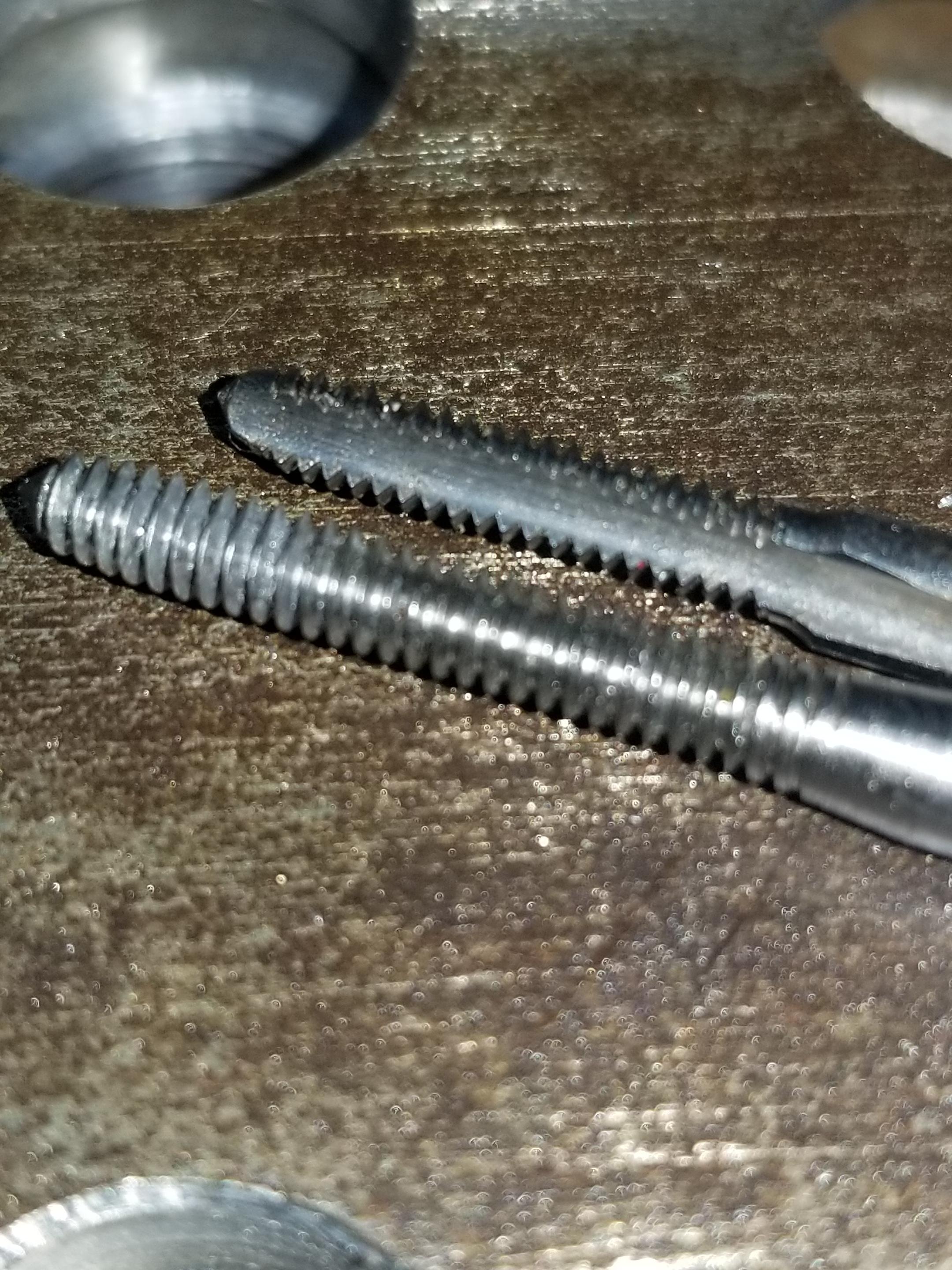- Joined
- Apr 7, 2018
- Messages
- 131
Background: I am building 9 cylinder radial engine (The Ageless design). I am currently working on the crankcase for this beast and it requires me to tap 109 4-40 holes. The instructions warn me that the crankcase at this point if far more valuable that the price of a couple of taps and that I should use "fresh" ones. This 6061 aluminum, by the way. Some are through holes and some blind holes. I am planning on using coated spiral fluted tap, both pointed and bottoming. I really, really, really don't want to break a tap at this point. My question is for those with manufacturing experience. How many holes can a tap tap if a tap could tap? (Sorry, couldn't help my self.) The number is obviously somewhere between 1 and 110 for my project. Lots of TapMagic is expected to be used. I will acquire what is needed, but the taps do range between $15 and $25. Any recommendations tap brand and number would be helpful.
With machining metal, I am always learning new things, usually that involve more money.
Thanks in advance.
With machining metal, I am always learning new things, usually that involve more money.
Thanks in advance.


